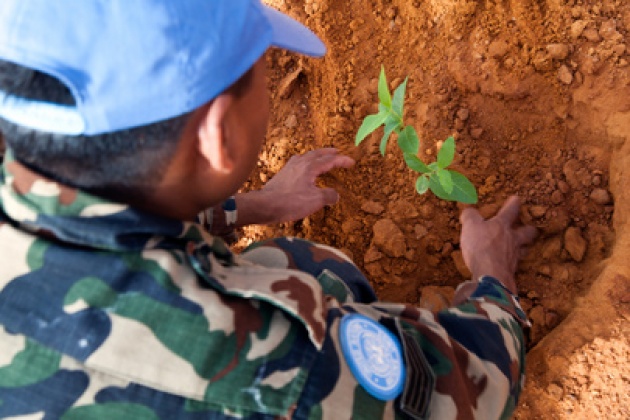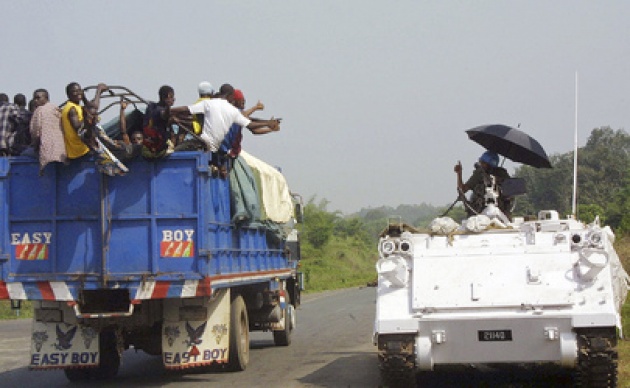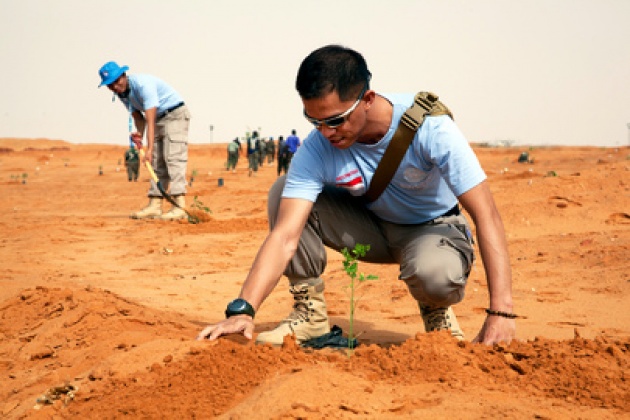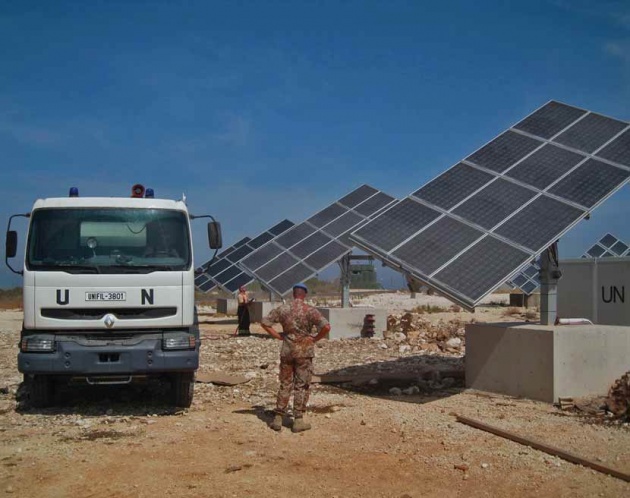Environmentally friendly economic opportunities is not part of the job description of over 120,000 persons serving globally, but it increasingly may be part of Peacekeepers’ commitment. “The 'blue helmets' carry out demanding work, in difficult situations, where clean water, forests and other key resources are often already under pressure. This training programme is a critical step towards making peacekeeping operations more sustainable and effective,” the Executive Director of the UN Environment Programme (UNEP) Achim Steiner, said in a news release. “Such greening measures can serve to reduce conflict, and to make an important contribution to global efforts to improve resource efficiency and meet the challenges of climate change.”

The UN initiated this week training/education measures to assist UN Peacekeepers in addressing environmentally friendly methodologies in doing their work. The course will be delivered online. According to the UN Department of Peacekeeping Operations (DPKO), the 120,000 people are serving as UN peacekeepers, (including in military, police and civilian capacities), in 16 DPKO-led peace operations around the world. Greening the Blue Helmets Report was produced by UNEP earlier this year and analyzed how peacekeeping missions around the world affect, and are affected by, natural resources and the broader environment.

Significant Environmental Footprint:
The Report found that while UN peacekeeping operations play a key role in the recovery and stability of countries emerging from conflict, they have a large environmental footprint and can place considerable demands on local resources in fragile environments. The Report makes a set of recommendations as to how sustainability measures can be improved in all missions.

Already Moving Forward with Environmentally Less Intrusive Measures:
Some examples of environmentally sensitive measures already adopted (according to UNEP):
---The UN Interim Force in Lebanon (UNIFIL) has introduced several environmental practices, ranging from the use of electric cars at the mission's headquarters in the southern town of Naqoura, to energy-efficient power generation and the establishment of a community-led recycling plant.
---At the UN Integrated Mission in Timor-Leste (UNMIT), switching off equipment or adjusting room temperature settings have resulted in a 15 per cent reduction of energy consumption. According to UNEP, a simple measure like this one could save $95.7 million annually if it was implemented across all missions.

According to UN News Centre: The new training program, which was compiled with the technical assistance of the UN Institute for Training and Research (UNITAR) and the International Institute for Sustainable Development (IISD), aims to disseminate these good practices to all missions and to encourage investments in new technologies, practices and behaviors that can reduce the overall environmental footprint of peacekeeping. The launch of this program coincided with the 20th anniversary of the International Day of Peace - the theme “Sustainable Peace for a Sustainable Future.”
Ambassador Muhamed Sacirbey - FOLLOW mo @MuhamedSacirbey
Facebook-Become a Fan at “Diplomatically Incorrect”
Twitter – Follow us @DiplomaticallyX
See more at our Popular Video Blogs & Current News Event Articles – Ecology-Diplomat Channel



